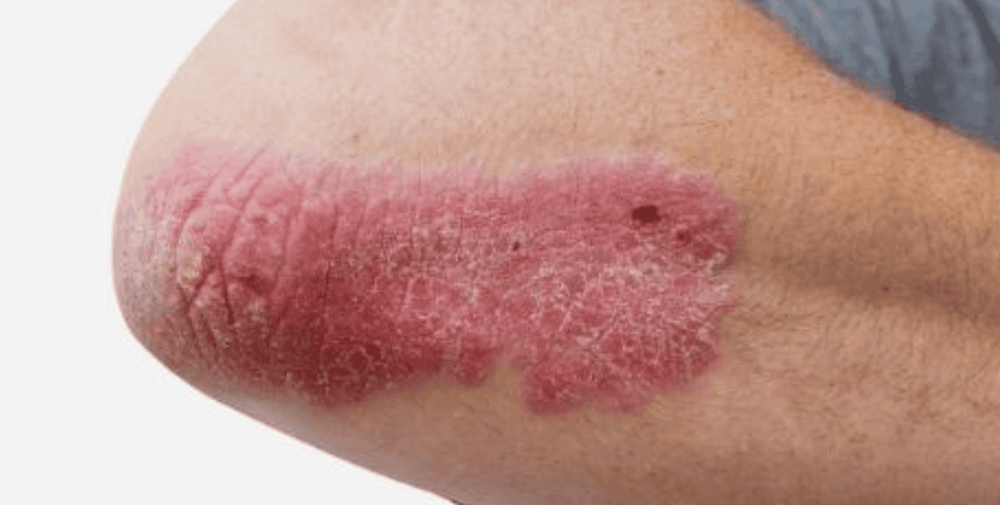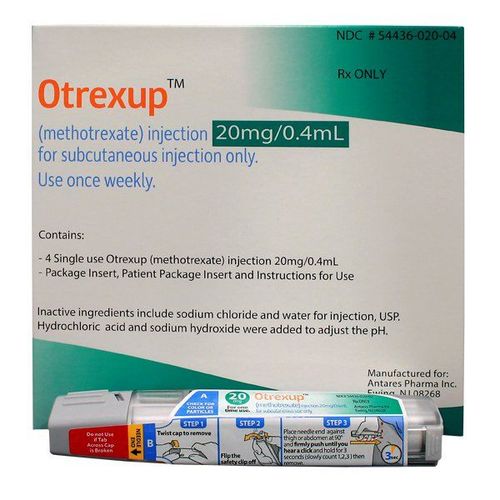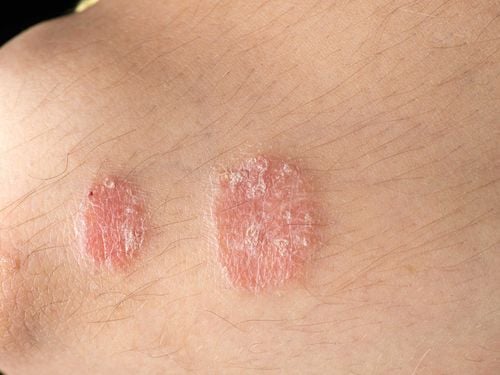This is an automatically translated article.
Patients with psoriasis have an increased risk of developing type 2 diabetes. Inflammation makes it difficult for cells to absorb sugar from food. Excess sugar accumulation in the blood is the cause of diabetes.
1. The relationship between psoriasis and type 2 diabetes
Psoriasis is an autoimmune disease in which the body overproduces skin cells, causing a thick, red scaly rash. This condition appears on the palms, soles, elbows, scalp, or lower back. Currently, drugs can only treat the symptoms of the disease, but not completely. Therefore, treatment tends to continue throughout the patient's life.
People with psoriasis have an increased risk of developing type 2 diabetes, even if they don't have diabetes risk factors such as obesity. One study compared 108,000 psoriasis patients with 430,000 people without psoriasis. Research has found that people with chronic psoriasis have a 46 percent higher risk of developing type 2 diabetes. Mild psoriasis leads to an 11% increase in diabetes.

Bệnh vảy nến làm tăng nguy cơ mắc đái tháo đường
Psoriasis and type 2 diabetes both lead to systemic inflammation, which may explain the link between the two diseases. Inflammation can lead to insulin resistance, which is what causes type 2 diabetes. Specifically:
In people with psoriasis, skin cells are replaced too quickly. Normally, it takes 3 weeks to 4 weeks for cells to grow in the deeper layers of the skin. As they mature, they slowly rise to the surface. However, psoriasis causes immature skin cells to reach the surface in less than a week, after which they die and slough off. This leads to red, itchy patches of skin.
The team from King's College, studied human and animal skin samples, to look for any psoriasis-associated molecular changes that could trigger diabetes. They used an experimental model of psoriasis created by applying imiquimod - an immune response modifier - to mouse and human skin. The researchers found that skin from mice with psoriasis demonstrated inflammation and insulin resistance, a risk factor for diabetes. This resistance means that the cells do not respond correctly to the hormone insulin and do not remove glucose from the blood. In addition, beta cells in mice with psoriasis produced more insulin than in unaffected mice.

Bệnh nhân bị đỏ và ngứa da do bệnh vảy nến
2. Symptoms of type 2 diabetes in psoriasis patients
Some of the symptoms of type 2 diabetes that appear in patients with psoriasis are:
Frequent urination Unusual thirst Frequent hunger Sudden weight loss Fatigue and irritability Frequent infections Blurred vision Cuts , slow-healing bruises Sharp pain or numbness in the limbs Skin and gum infections However, there are some cases where people with type 2 diabetes often have no symptoms. Therefore, it is important for psoriasis patients to work closely with their doctor to reduce their risk of diabetes such as maintaining a healthy diet, exercising regularly, and keeping their blood pressure and cholesterol in check. and regular blood sugar.

Bệnh nhân vảy nến cần duy trì lối sống lành mạnh và khoa học
Obesity is a risk factor for psoriasis as well as type 2 diabetes. So people with psoriasis should try and maintain a healthy weight, exercise regularly, and eat plenty of fiber to keep them healthy. prevent diabetes. The incidence of psoriasis increases with weight gain. For example, obese people with a body mass index (BMI) over 35 are nearly twice as likely to develop psoriasis than normal-weight people. BMI is a measure of body fat based on height and weight. A BMI of 30 or more is considered obese.
Vinmec International General Hospital with a system of modern facilities, medical equipment and a team of experts and doctors with many years of experience in medical examination and treatment, patients can rest assured to visit. examination and treatment at the Hospital.
To register for examination and treatment at Vinmec International General Hospital, please book an appointment on the website for the best service.
References: ncbi.nlm.nih.gov, webmd.com, psoriasis.org, medicalnewstoday.com
Please dial HOTLINE for more information or register for an appointment HERE. Download MyVinmec app to make appointments faster and to manage your bookings easily.
MORE
Is Psoriasis Contagious? Psoriasis is difficult to treat definitively Does psoriasis cause itching and how is it treated?













